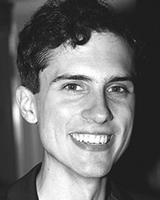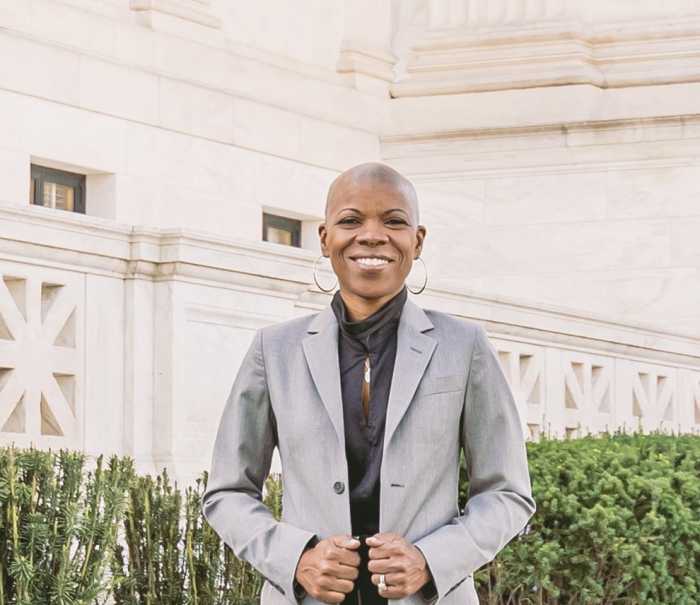Korea’s choreography, Anderson’s big band tribute, Summer Ray’s heat
As a playwright, A.R. Gurney is in his magisterial prime, which his enchanting “Indian Blood” (seen August 9) clearly proves. At the Sarabeth opening night party, he happily knocked back the wine, equally pleased with the flawlessly acted, Mark Lamos-directed production: “It’s pure autobiography, and it took a while for me to be able to write this. I tried to put in every obsolete reference from my youth that I could—from Abbott & Costello to Oldsmobile.”
I told Gurney that, for a heterosexual, he writes the best gay characters on the stage, like in “Big Bill,” “The Fourth Wall,” and, in “Indian Blood,” Matthew Arkin’s Uncle Paul. “I had an uncle just like that,” Gurney said. “He lived with his mother––an elegant man, a genius stockbroker, who unfortunately drank and ate too much and died at 56. There were so many men like him in those days, living quiet lives, when gay was unmentionable. As for ‘Big Bill,’ I thought it was amazing that this man, Bill Tilden, who was as big a star as Tiger Woods is today, who put tennis on the sports map, could be so completely forgotten. His game started to go downhill and then there was all this stuff about him with young boys and he was finished.”
Katherine McGrath, uproarious as the family maid, seriously flubbed a line, and apologetically came up to Gurney: “But I did get a laugh there, didn’t I? I swear, all I could see at that moment was a white brick wall with the words ‘Steel Wool’ on it. I knew that wasn’t right so I just said, ‘They should wash your mouth out with… something!’” Gurney told me the flubbed line should have been ‘witch hazel.’
28-year-old Charles Socarides is a completely ingratiating real find, as Gurney’s young, trouble-prone protagonist, and commented, “This role is quite a switch from my movie, ‘Virgin,’ in which I played a rapist, with Robin Wright-Penn. I studied at Stella Adler studio, but left at two years––there were too many bad disciples of hers teaching over there. My agent sent me this play and I was so happy to be cast. [About playing the young A.R. Gurney] Pete [Gurney] was always there to answer questions, but never told me how to play him––it’s all on the page.”
Rebecca Luker, who plays his mother, a straight departure for this musical star, who nonetheless gets to satisfy the audience with a song, said, “I’m embarrassed to say that I did have to audition for this. But luckily, Pete believed in me and convinced Mark Lamos to cast me. It’s hard to break out of musical type casting. My song [“You’d Be So Nice to Come Home To,” which she sings modestly, in character] was written into the script, and it’s hard to not to break out and really sell this great Cole Porter piece. I’ll be so sad when this play ends [on September 2] and I go into ‘Mary Poppins.’ We have really become a family.”
You won’t see two better performances in the entire Fringe Festival than those of Patricia Randell and Mike Berberich in Michele Aldin’s convoluted play about teen terrorism, “Dear America” (seen August 15). Twenty-year-old Berberich is a stage natural, funny and true as best friend to Randell’s alienated son. I have now seen Randell portray Greer Garson in Richard Willet’s marvelous “Random Harvest,” Dorothy Parker’s alcoholic, suicidal alter ego in “Ladies in the Corridor,” the title role in “I’m Peggy Guggenheim and You’re Not,” and a hilarious standup comic in “Hellgig,” and can firmly attest that there is no more authentic actress on the New York stage than she. Her flawless Boston accent in “Dear America” alone is worth serious study.
On August 8, the stage of New York State Theatre was ablaze with the color, movement, and music of Kang Sun Young Dance Company from Korea. This 60-member company electrified the audience with a lavish program of traditional dance, accompanied by a brilliant 14-piece orchestra, which featured the most dynamic drumming I have ever heard.
The star of the occasion was Kang Sun Young herself, making her New York debut at age 81. Her every gesture was eloquence itself––the arching shoulders enveloped in musical rhythm, the lifted skirt to display her miraculously nimble, white-shod feet.
I was happy to see the number of enthusiastic children in the audience, brought by their families to experience their roots in a culture far removed from the rap and hip hop that pervades Koreatown. I had the benefit of early exposure myself, as a kid in Hawaii, and the dancing and, especially, those rainbow-hued costumes, drove me mad. For a while, I was the only boy at the studio of Halla Huhm, founded in 1950, which remains today the only continuing source of such culture in Hawaii. Seeing this company’s solo male dancer, executing the same moves as the women with such virile grace, brought it all back to me.
The performers took their curtain calls in ascending order of age, and it was thrilling to see the final row of women, in their 60s and possibly 70s, acknowledging the acclaim for work seasoned by years of dancing and life experience, which have rendered them not obsolete, as so happens in Western dance, but all the more treasured and, indeed, interpretively superior to the young guns.

“It Should Happen to You,” showing as part of Lincoln Center Film Society’s Judy Holliday salute (August 25-31), is the perfect summer movie to kiss off this steamy season, as well as the perfect date flick. George Cukor’s 1954 contemplation on celebrity culture, centering around “nobody” Holliday’s gigantic Columbus Circle billboard, is even more relevant today, and the location shots of Central Park and the West Side have a deeply nostalgic charm. Jack Lemmon, in his film debut was never more appealing and, the duet of “Let’s Fall in Love” which he and dulcet-voiced Holliday croon is magical.
Holliday isn’t at her best in “The Marrying Kind” – too screechy and abrasive – but the film is stolen clean away from her by the luscious Aldo Ray, as her put-upon hubbie. Cukor had never had such a prime specimen of Hunkus Americanus to direct before, and his camera caresses every inch of Ray, like an attentive masseur in search of a happy ending. Husky-voiced Ray has the face of Jude Law on a body buffed through his experiences as a former Navy frogman and the sheriff of Crockett, California, and a marvelously natural camera presence to boot.
Backed by a smoking eight-piece band, the entrancing Nancy Anderson did selections from her new CD, “10 Cents a Dance,” at Birdland on August 14. Her throaty, fluttery voice paid rousing tribute to such big band singers as Teddy Grace and, at times, she sounded uncannily like that greatest of barroom voices, Dorothy Loudon, while physically recalling early talkie sensation Nancy Carroll, whose 1929 film “The Dance of Life” provided Anderson’s song “True Blue Lou.” I loved her belting, but her Rodgers & Hart medley was a tad over-emoted. With songs this good and familiar, you don’t have to act out every lyric. I would direct Anderson, a lover and collector of old vinyl, to the underrated Shirley Ross 1940 recording of “It Never Entered My Mind”––simple, sweet, and crushingly sexy.
Contact David Noh at Inthenoh@aol.com.
Twenty-eight-year-old Charles Socarides, completely ingratiating as A.R. Gurney’s young, trouble-prone protagonist in “Indian Blood,” is a real find.
Judy Holliday isn’t at her best in “The Marrying Kind,”—screened as part of Lincoln Center Film Society’s salute to the comedic actress August 25-31. The film is stolen clean away from her by the luscious Aldo Ray, as her put-upon hubbie.
There is no more authentic actress on the New York stage than Patricia Randell, seen at the Fringe Festival in Michele Aldin’s convoluted play about teen terrorism, “Dear America.”
gaycitynews.com





































